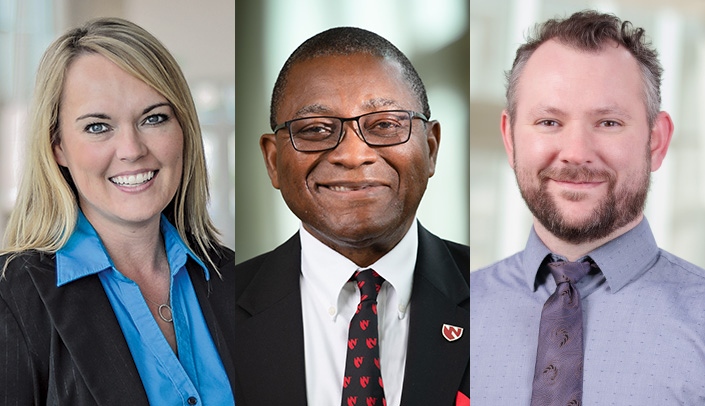Results of a universitywide survey show that the UNMC community believes that educators and learners largely responded well as campuses shifted to online instruction due to the challenges of the COVID-19 pandemic.
The survey, directed by the Offices of Institutional Research and Accreditation and Assessment, was open from April 30 to May 15 and had more than 1,000 respondents.
Andrew Robertson, an institutional research analyst, said the survey showed that faculty felt students adjusted well to online learning, while students reported they were largely satisfied with the quality of their education after the move was made to remote learning.
“We asked students if they felt that they have experienced a decrease in the quality of their education, and about 85% indicated there was an increase, no change or only a slight decrease in the quality of their education,” Robertson said.
In fact, almost half of respondents felt that some form of remote learning should be permanently incorporated into the curriculum.
The survey also showed that “students really miss the campus environment and being able to interact with other students face to face,” Robertson said. “We had strong responses along those lines.”
“From this survey, we are able to get an overall view of the transition to remote learning, but also some specific positive aspects and needs that will help in planning for the fall,” said Kendra Schmid, PhD, director of assessment. “One main positive is the flexibility remote learning allows, and a need identified is for quiet learning spaces.”
The survey was assembled and disseminated quickly, the result of teamwork across the entire campus, Robertson said. As a result, UNMC is in a position to use the survey results to improve its remote educational efforts quickly. Almost half of the respondents also indicated that they were willing to participate in follow-up research that could narrow information by college or program to identify areas of potential improvement.
Dele Davies, MD, senior vice chancellor of the UNMC Office of Academic Affairs, said he was pleased with the results of the survey and would use the information to improve UNMC’s education efforts.
He also applauded the efforts of the teams that created and conducted the survey.
“As educators, we understand that knowledge is power,” Dr. Davies said. “Being able to receive feedback on our educational efforts so quickly enables us to be versatile and adaptable in these times of unprecedented educational transformation. This information will allow us to improve the quality of our programs and support our faculty in continuing to provide a world-class educational experience for our students.”
